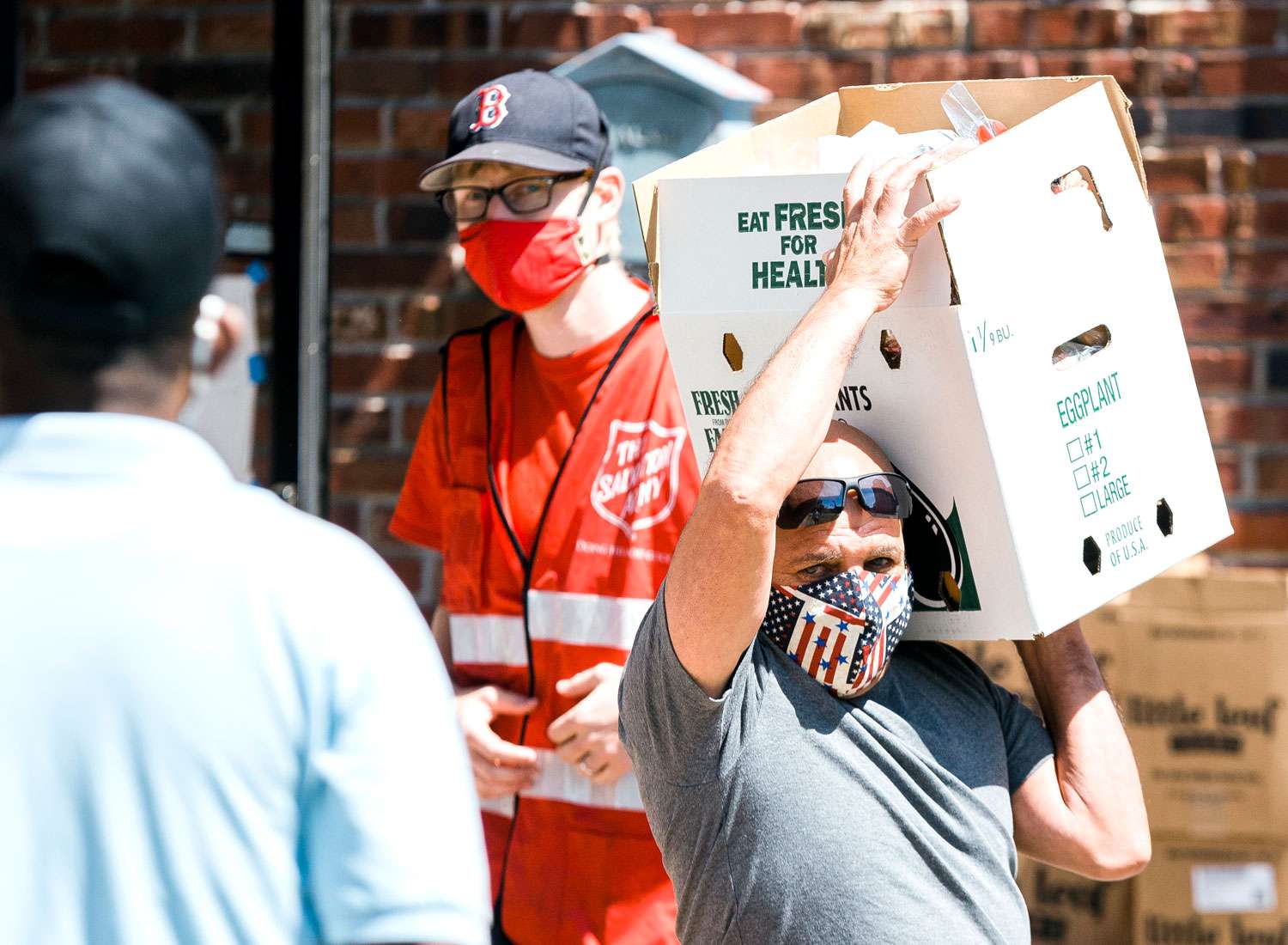LYNN — Since expanding its food program to five days a week in March, the Lynn Salvation Army has donated about 1.5 million meals during 43,000 visits to its 1 Franklin St. location.
According to Salvation Army organizer Captain Kevin Johnson, the service — already the largest food pantry in Lynn — expanded in direct response to the COVID-19 pandemic. Johnson said food insecurity has increased because of lost jobs and paychecks during the pandemic.
“It’s helping people. I mean, realistically, a lot of people are living paycheck to paycheck, especially here because of the high cost of rent,” Johnson said. “And, a lot of them are trying to recoup what’s been lost because of the last three months of being in quarantine.”
About 500 families receive food from the Lynn Salvation Army each day during its open hours from 9 a.m. to noon, Johnson said. Previously, the pantry was open three days a week, helping 75 to 90 families a day.
From an operational standpoint, Johnson said “the biggest change” has been using a drive through service, rather than having walk-ins, to minimize the amount of person-to-person contact, Johnson said. It isn’t rare to see as many as 60 cars roll through the drive-through during just a half-hour span on weekday mornings.
Johnson said the food insecurity in Lynn has been historically tied to its status as a “gateway city with so many hourly workers.”
The Salvation Army is receiving funds and food from numerous sources currently, Johnson said, with money coming in from the state and private donations, and with meals coming from farms, including those with federal Coronavirus Food Assistance Program financial relief, and other private businesses — corn comes from as far away as Delaware, Johnson said.
With businesses reopening, Johnson said the Salvation Army could “simmer down” if the demand for food decreases. However, at the same time, the Salvation Army is preparing for an increase in demand if there is a “second wave” of COVID-19, and the Lynn location is already making plans to save food, get permanent refrigeration, and potentially buy a forklift for storage. It’s impossible to predict the future, Johnson said.
We are a safety net in case people get quarantined again,” he said.
Several people who visited the Salvation Army on Thursday said they can not afford food and need the Salvation Army’s food program to eat.
Rachel, who did not wish to give her last name, said she is a single mother in Lynn who lost her job at a restaurant early on in the pandemic, and she relies on the Salvation Army for food every week.
“I really, really don’t know what I’d be doing (for food),” she said. “At the beginning, when this all started, I just did not know — I did not know where I was going to go, what I would do, with the paychecks, them stopping coming.”
Another man, who also lost his job in the restaurant industry, said he had never considered himself to be “food insecure” in his life, and never thought he would have to visit a food pantry until the pandemic.
“The numbers just didn’t work. Even with the moratorium (on evictions), I still have rent. I just can’t afford the normal things right now,” he said.

